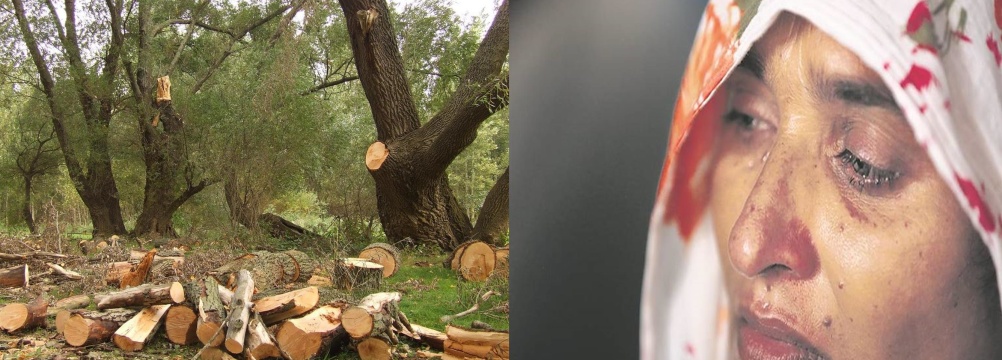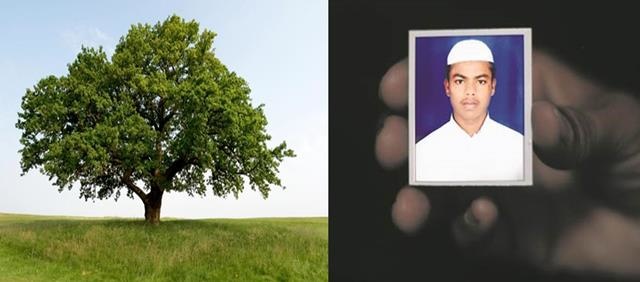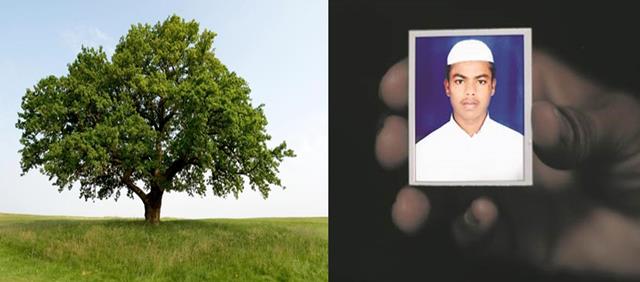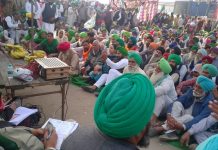We kill trees. We destroy the ecosystem. The master narrative of development justifies and even sanctifies this violence. Should we allow it to happen , or think of a new practice?
Prof. Avijit Pathak teaches at the Centre for the Study of Social Systems, Jawaharlal Nehru University, New Delhi.
An old neem tree adjacent to the Mother’s International School on Aurobindo Marg is the first casualty in an 8-km road-widening project that will affect as many as 30 trees. Traffic officials said a survey was conducted to identify trees that were hazardous to commuters. ( The Indian Express, New Delhi, June,30).
It is quite early in the morning. The illuminating sunrise has already touched my being. And once again, I am reminding myself of Rabindranath Tagore’s famous composition—a song of prayer, a song of gratitude: we find ourselves amidst this extraordinarily beautiful ecosystem, and this connectedness purifies our souls. At this very moment, the morning newspaper arrives; and I see this report: the reckless violence man launches against the natural landscape. From Tagore’s prayer to the political economy of DEVLOPMENT—this shift is not merely epistemological; I pass through psychic/spiritual turmoil. Am I supposed to feel sad over the death (or murder) of a tree? Am I becoming too romantic/poetic? If modernity assures development, and if development—a gospel of speed, comfort and efficiency—demands human supremacy over nature, why should I object to it?

No, I cannot arrive at this ‘certainty’—this confidence in DEVELOPMENT: its belief in hyper-masculine techno science, its irresistible desire for material comforts, its perpetual restlessness and speed, and its measurement of every fragment of time. Yes, I know that Francis Bacon made us believe that knowledge is power; and nature has to be objectified/used/manipulated for the ‘wellbeing’ of the humans. I know that Rene Descartes generated the dualism of body and mind; and his celebration of some sort of ‘pure’ disembodied reason gave a new momentum to this carnival of modern progress—consider everything as a ‘resource’: rivers, trees, minerals! Despite occasional reminders by the likes of critical theorists, eco-feminists and spiritual anarchists, the master narrative of DEVELOPMET remained unquestioned. Science promotes it; nationalists celebrate it; market needs it; and the contractor-politician-corporate mafia cannot exist without it. And ironically, you and I too have accepted its hegemony. Take, for instance, our fascination with speed. Our cars and trains must run faster; our roads and railway tracks must be more widespread; and we must reach our destinations ( where are these destinations—corporate office cubicles, malls, Bigg Bazars, tourist spots?) as early as possible. Hence, as the newspaper report suggests, an old neem tree is seen to be ‘hazardous’ to commuters. See the language. We have already created the discourse. A tree is an obstacle. Kill it, murder it, and widen your express highways. We seem to be comfortable with this design. This seems to have become our dominant commonsense. Why to feel sad about this old neem tree? Accept it as normal, inevitable, a necessary price to be paid for a desirable dream of PROGRESS.
At times, I wonder what has really happened to time—the time we are supposedly saving, and for which all these bullet trains, cars, express highways, flyovers, parking spaces are created, and trees are ruthlessly destroyed? Despite the ‘time saving’ devices, nobody has time; nobody is relaxed without being oppressed by the tyranny of the clock. Who is taking this time? Our employers? Our corporate bosses? Our mobiles, emails, facebook socialization, and this constant rush to remain ‘relevant’? There is no time to hear one’s own heartbeat; there is no time to look at the sky, to see a butterfly roaming around the flowers, to feel the wrinkled face of one’s old grandmother, to sit idle and do nothing (everything is in this nothingness). This rush, this myth of ‘saving time’, and this desire for ‘more’ cause spiritual void. We become violent, one-dimensional and heartless.

Is the nation too becoming heartless? Yes. The nation is the cumulative expression of this desire. Believe it; we cherish the alliance of hyper-masculine/militaristic nationalism and ecologically destructive development. We are lured and mesmerized by its spectacles. Hence, we cannot see anything else. Think of it. Can you feel the shade of a tree in a mall? Do you have the energy to take your eyes beyond the skyscrapers, and see the amazing sunset? Has the sight of a crane destroying the mountains caused pain in you? We do not see. We do not feel. Not surprisingly, we keep killing trees; we destroy the ecosystem.
The other day we killed yet another tree—a tree in the human form, a tree named Junaid Khan. Like a neem tree he too could have evolved as a soul radiating an ethic of care. However, it is our hyper-masculine nationalism that saw this 15-year old boy as an obstacle. Like the neem tree he too was killed. And, as usual, nobody saw anything. Yes, we have become blind. Our cars have to run faster, our ‘comfort index’ has to rise up, our Prime Minister has to emerge as the ‘World Leader’, the zealots have to be protected for their ‘cow protection’ drive, and the Ambanis and the Adanis have to sell their products. We exist for these ‘big’ goals. We have no time for a neem tree, for Junaid Khan.
Yet, I regain myself. I approach a tree—an old banyan tree. I remain silent. I wait. And then, the tree begins to whisper into my ears. My body begins to tremble. I see the tree embracing Junaid Khan, and taking him inside its roots. I see Gandhi and Kabir, Buddha and Jesus, Mohammed and Rumi coming out of the roots of the tree and looking at me. I cannot bear it anymore. I run away…
The New Leam has no external source of funding. For retaining its uniqueness, its high quality, its distinctive philosophy we wish to reduce the degree of dependence on corporate funding. We believe that if individuals like you come forward and SUPPORT THIS ENDEAVOR can make the magazine self-reliant in a very innovative way.














